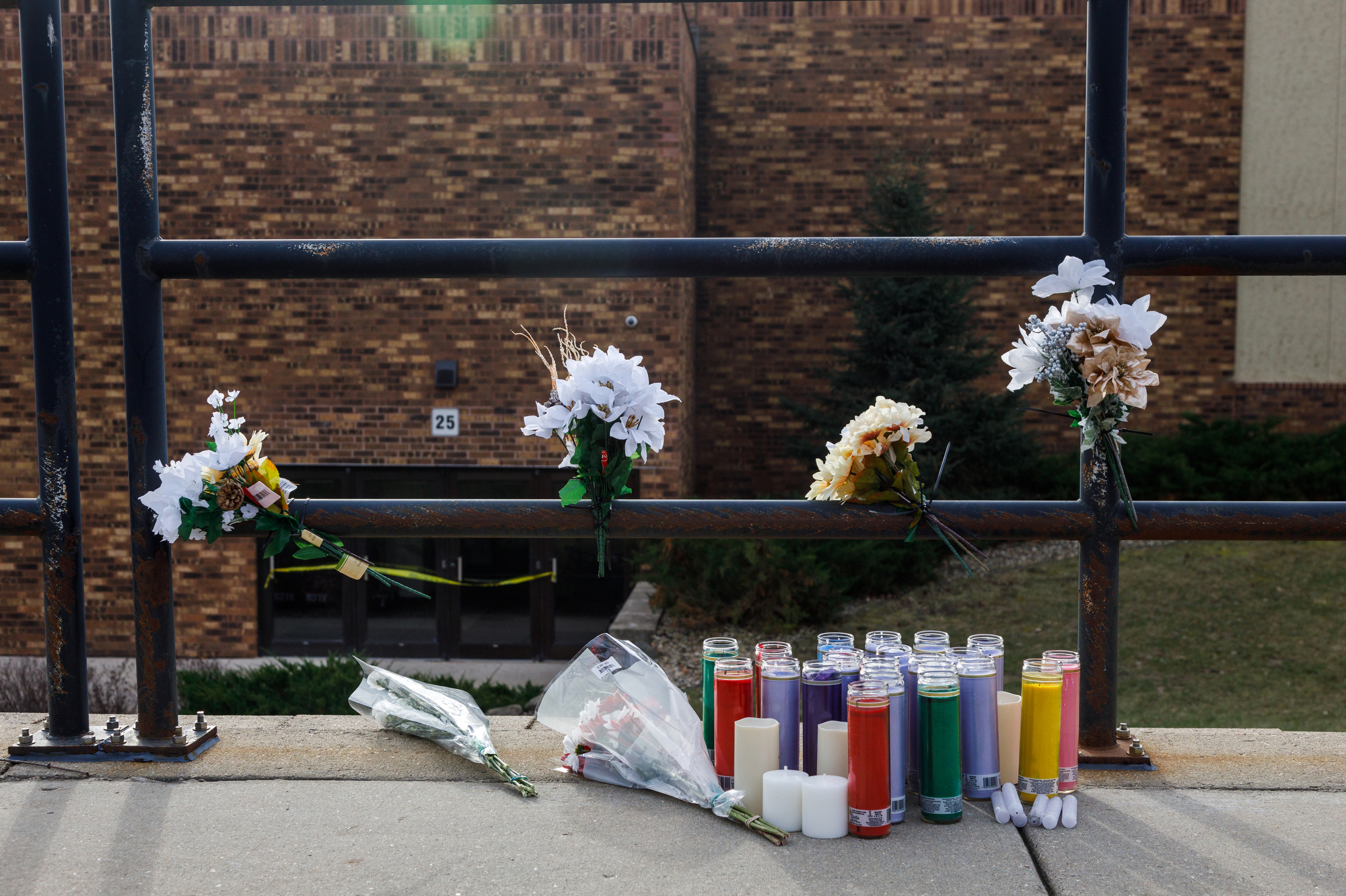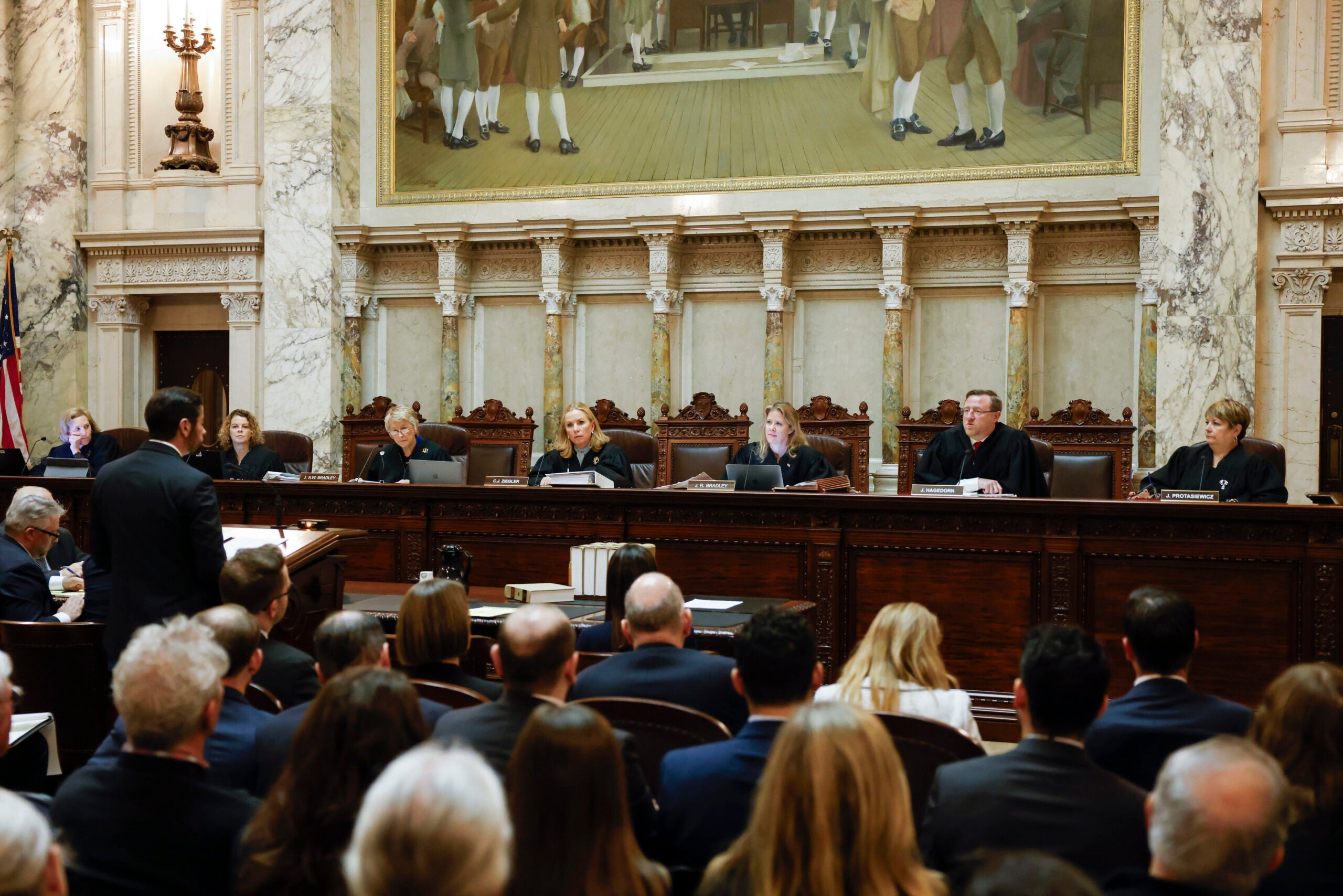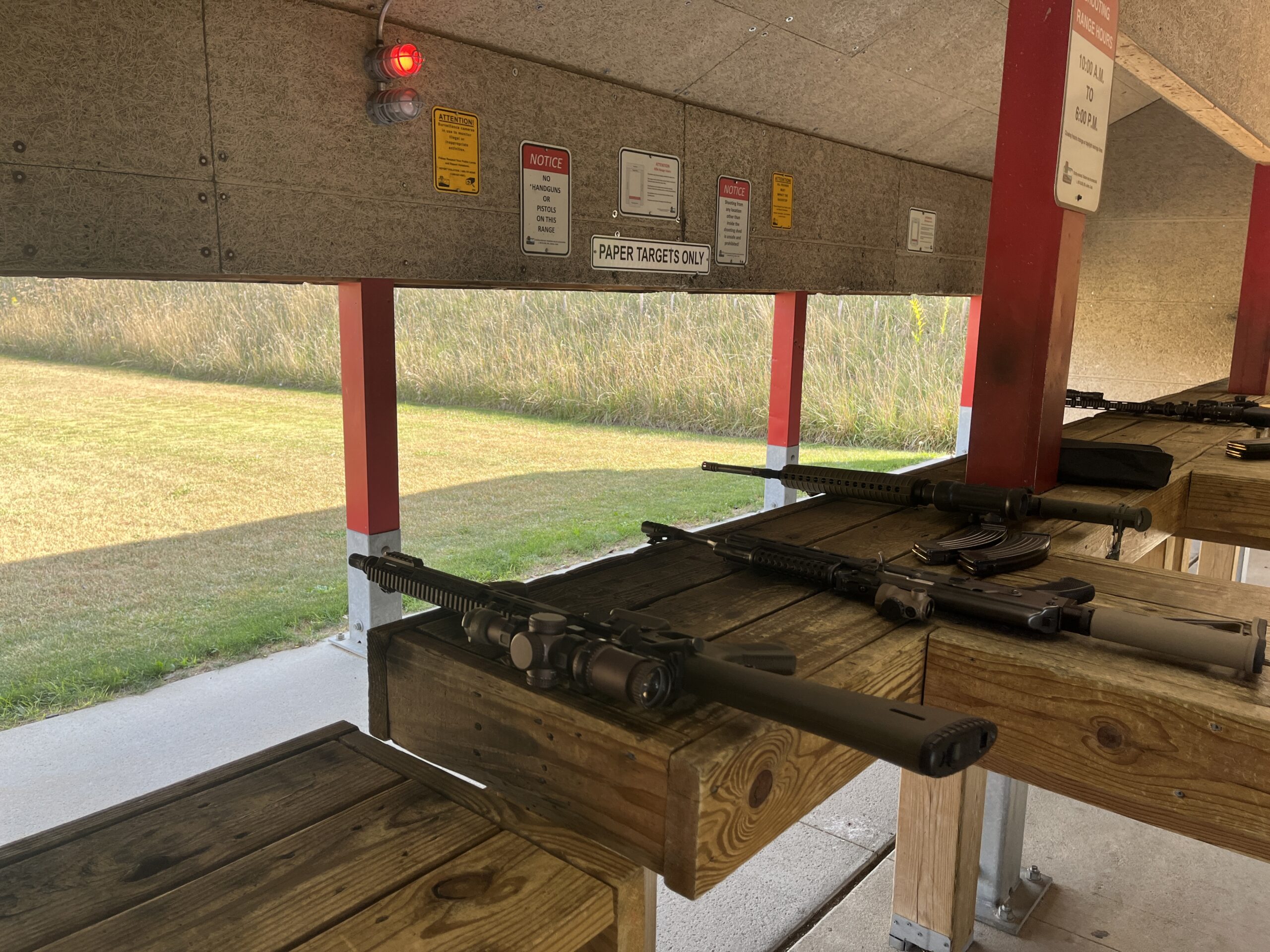The attack came without warning and, as far as Jessica “Jesi” Ewers could tell, without provocation.
It was early in the morning of Oct.19, 2020. Asleep at her home near Cottage Grove, Wisconsin, she woke up to her boyfriend, James “J.T.” Budworth, beating her. He punched her, tried to strangle her, destroyed her cellphone and threatened to kill her and her children. He also bit her, once on the collarbone and once on the arm, where he tore off a chunk of flesh.
Later, Ewers told police it wasn’t the first time Budworth had attacked her. He drank heavily and abused testosterone and human growth hormones, and threatened to kill her regularly.
News with a little more humanity
WPR’s “Wisconsin Today” newsletter keeps you connected to the state you love without feeling overwhelmed. No paywall. No agenda. No corporate filter.
Dane County Sheriff’s deputies took him into custody, and when he was released four days later, there were conditions to his bail — he wasn’t supposed to have any contact with Ewers, use drugs or alcohol, or possess “any type of dangerous weapon.” This last point was especially important, because Ewers had told authorities that Budworth kept many guns at the residence they shared.
The conditions of his bail should have kept James Budworth from using those guns. They didn’t. Two months after being released from custody, Budworth used one of them to murder Ewers before taking his own life. Ewers’ five children were left without their mother.
Ewers’ daughter, Sati Ewers-Kubly of Sun Prairie, said the current system failed to keep her mother safe.
Having people voluntarily turn over their guns is “the equivalent of expecting a car thief to return the car and turn themselves in,” Ewers-Kubly said. “It’s not going to happen.”
Yvonne Ewers, Jesi’s mother, told Wisconsin Watch she doesn’t “know much about the legal loopholes” that allowed Budworth to keep that gun.
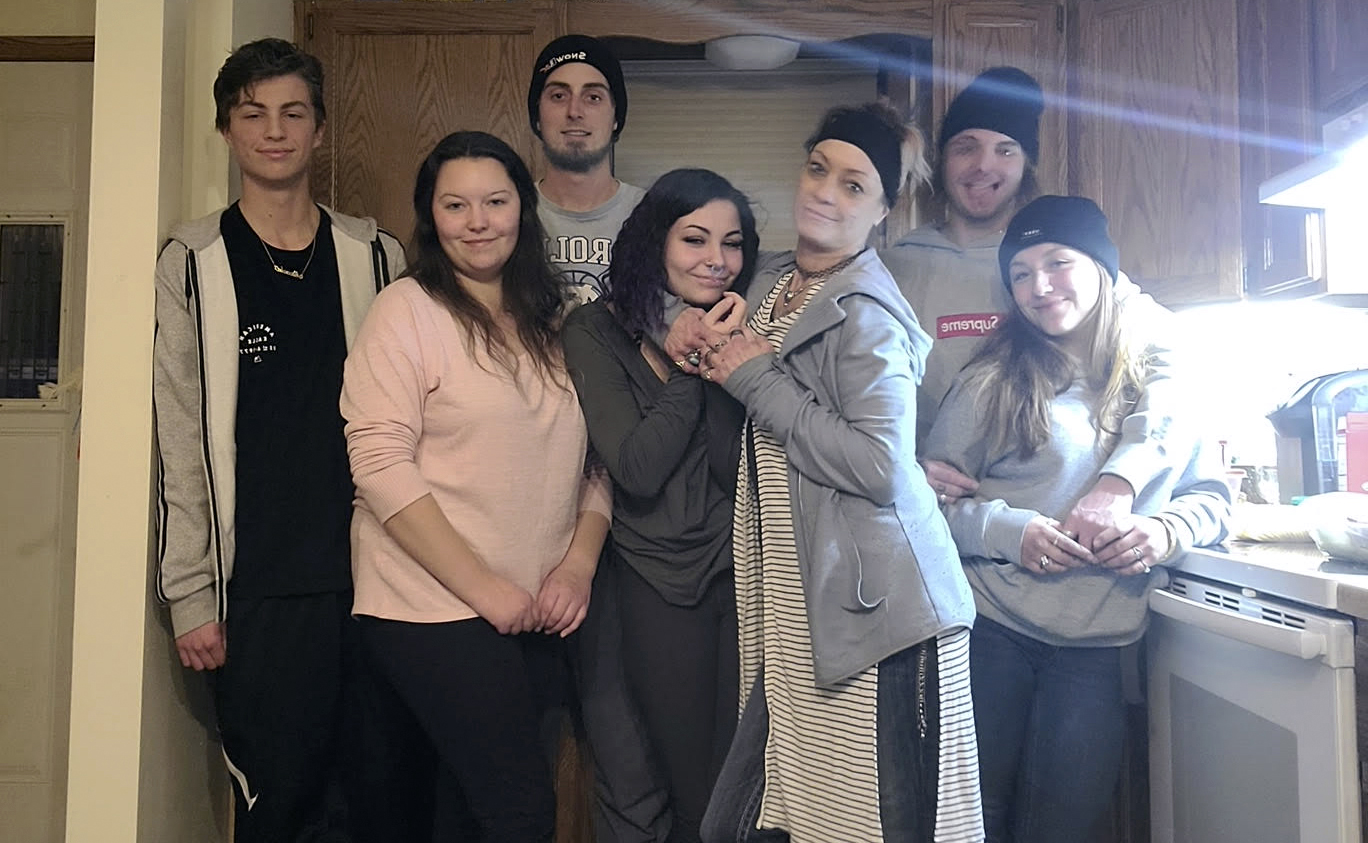
She added, “I still can’t believe it happened. It’s what you see on the news happening to someone else.”
The year 2020 saw a record for fatal domestic violence in Wisconsin, with 58 people murdered — the most since at least 2000, according to a report by End Domestic Abuse Wisconsin. The 2020 data, the most recent available, also saw Wisconsin’s highest-ever recorded proportion of victims shot and killed by abusers prohibited from owning guns. These murders accounted for nearly a quarter of all victims — Jesi Ewers among them.
While mass shootings such as the murder of 19 children and two teachers in Uvalde, Texas, on May 24 dominate the news, people in the United States are much more likely to be shot by a family member or intimate partner. The U.S. Centers for Disease Control and Prevention reports that 74,623 people were killed by firearms in 2020, most by a family member, intimate partner or acquaintance.
At least 110 dead due to loopholes
Cases like Ewers’ expose a specific problem: The system to ensure that abusers don’t have access to guns that fails victims again and again.
Wisconsin isn’t alone in this regard. In a 2021 investigation, Reveal from the Center for Investigative Reporting identified at least 110 domestic violence homicide victims shot and killed by abusers prohibited from possessing guns. There is no federal or nationwide organization that tracks these types of homicides, the investigation found, making that number “almost certainly a vast undercount.”
In many circumstances, law enforcement lacks the authority to confiscate weapons, even when bail conditions like those applied to Budworth prohibit gun possession. Meanwhile, laws aiming to bar convicted felons from accessing firearms are riddled with loopholes. Proposals exist to close some of the gaps, but not all; none would modify the system that failed Jesi Ewers.
Compounding the problem, domestic violence homicides committed with guns are rising nationwide, the Reveal investigation found, citing previously unpublished FBI data. In just the past decade, gun homicides by intimate partners spiked by 58 percent. Then, in 2020, such homicides rose by 25 percent compared to 2019 — the highest numbers recorded in nearly 30 years.
“We need to do better” on domestic violence, said Wisconsin state Rep. Lisa Subeck, D-Madison. “We need to invest directly in both prevention and response through organizations that provide services to DV victims and survivors.”
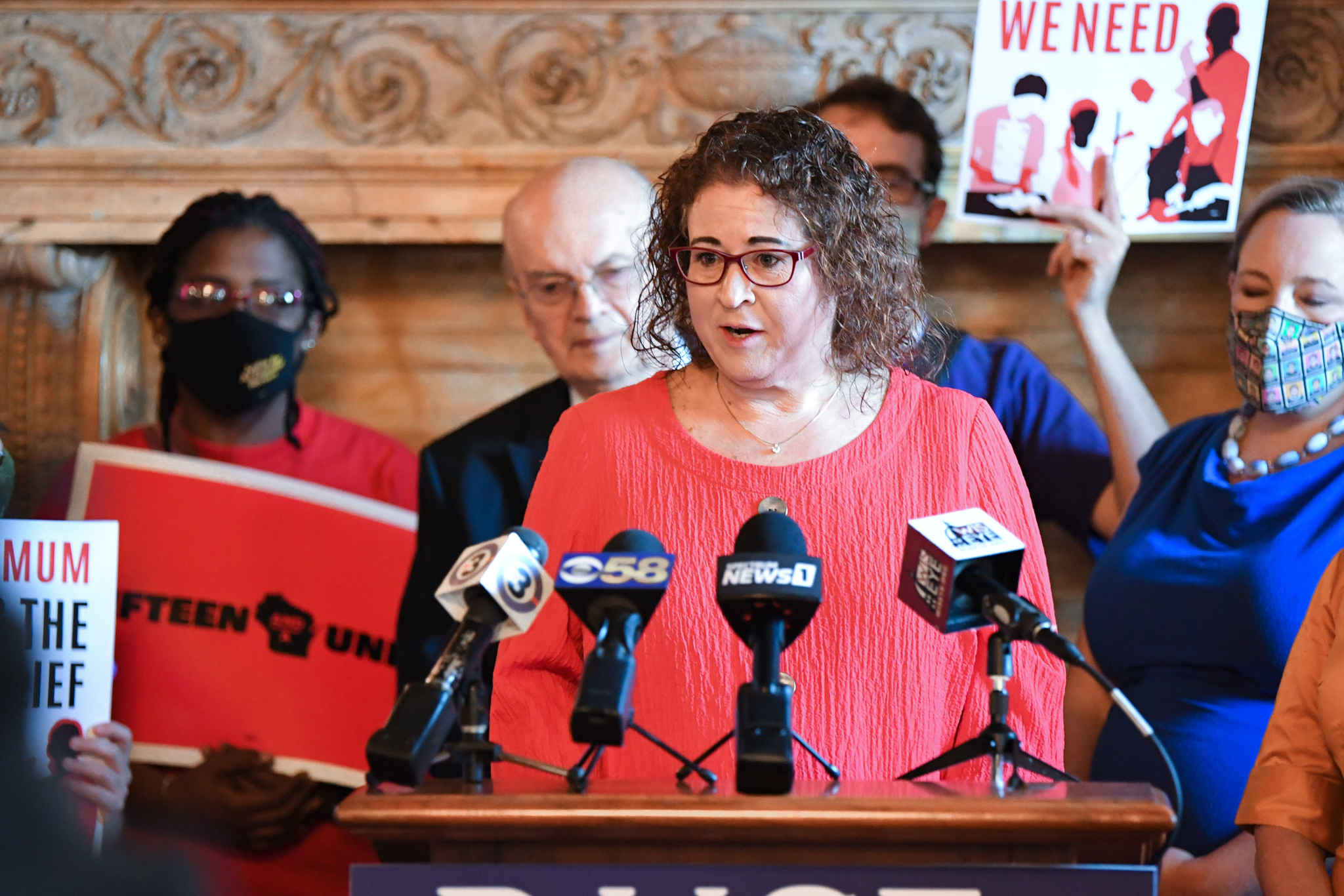
“No amount of excuses are good enough when somebody’s loved one is killed,” said David Keck, director of the National Domestic Violence and Firearms Resource Center.
Removing guns saves lives
Experts cite a raft of data in favor of removing guns from people accused of domestic abuse. Above all, the presence of guns in an abusive situation meaningfully increases the chances of homicide.
“In homes with domestic violence, and (where) the abuser has a firearm, the victim is five times more likely to be shot and killed by that firearm than in other homes with domestic violence where there’s not a firearm,” said Shannon Barry, executive director of Domestic Abuse Intervention Services in Madison, Wisconsin.
Research has also shown that removing firearms decreases the likelihood of homicide by any means in a relationship, said Sandra Shanahan, program manager of the Regional Domestic Violence Firearms Enforcement Unit in King County, Washington, which has developed the nation’s most proactive system for removing guns from respondents in protection orders.
The heightened risk of recidivism among domestic violence offenders only ratchets up concerns. Domestic violence is associated with a host of other crimes, including violence against non-intimate partners and mass shootings, in addition to high recidivism rates; one study in Washington state found that domestic abuse offenders were more likely to commit additional violent crimes post-conviction than offenders of any other kind.
“Domestic violence offenders are just a special population of offender with very high risks,” Shanahan said. “They’re implicated in so many other types of violent deaths and injuries.”
System easy to skirt
Despite the risks of abusers with guns, Wisconsin’s processes intended to divest abusers of their weapons largely rely on an “honor system,” particularly during the pretrial period — when Budworth murdered Jesi Ewers.
In Wisconsin, authorities can proactively remove an abuser’s guns only in response to a violence protection order against the abuser.
Wisconsin law prohibits respondents in domestic violence protection orders from possessing and purchasing firearms. When a court determines that a protection order meets this standard, respondents must list all the firearms to which they have access. (This did not apply to Budworth, who faced a no-contact order but not a domestic violence protection order.)
The court then orders that the firearms be surrendered with a date, time and a place. In Wisconsin, the county sheriff’s office usually takes possession of them.
“This method requires the respondent to be the person who has the burden of showing that they’re compliant,” said Keck, who created the surrender protocol used in Wisconsin’s domestic violence protection orders.
Finally, the court will hold a hearing to see if the defendant has complied with the order — usually after two weeks have passed.
“I think there needs to be that follow up, and that follow up needs to be much quicker,” said Ryan Poe-Gavlinski, director of the Restraining Order and Survivor Advocacy Clinic at the University of Wisconsin Law School. “In restraining order cases, they do that firearms surrender hearing two weeks out, but why are we not doing them within 48 hours?”
The system, however, largely relies on the respondents’ honesty about their weapons access — hardly a guarantee, experts say.
Moreover, in cases like Jesi Ewers’, Wisconsin has no weapons-surrender protocol.
How the honor system failed Jesi Ewers
In some states, like Colorado, prosecutors can move for a criminal protection order at a bail hearing for domestic violence, which starts a firearm surrender protocol just as an order filed by a victim would. Wisconsin has no such option, according to Keck.
And although Budworth was prohibited from having firearms as a condition of release on bail, no surrender protocols ensure that defendants comply. Defendants can voluntarily arrange to surrender their weapons to the sheriff’s office or a third party.
“If someone is given a bail condition not to possess weapons, that is entered into record, and if the person violates, they would be subject to additional criminal charges,” said Elise Schaffer, spokesperson for the Dane County Sheriff’s Office, which handled the Ewers case. “Basically, all of this is still on the ‘honor’ system, because we do not go in and search a person’s home to clear it of firearms as a matter of ensuring compliance.”
In other words, although the defendant’s bail would be revoked if the weapons prohibition is violated, there is no mechanism in place to check.
“For a lot of people, the system works the way it should,” said Poe-Gavlinski, but she admitted that problems persist. “The folks who are going to want to try to kill somebody are probably going to find a way to get a weapon no matter what and kill them anyway.”
For Jesi Ewers, the “honor system” appeared to have worked — at least at first. Weeks after his release on bail, James Budworth voluntarily surrendered firearms that had been stored in the house he shared with Ewers, handing them to a third party.
But Budworth didn’t surrender all of his guns — he reported three of them “stolen.” After Budworth murdered Ewers, authorities discovered two of those guns had remained inside the house all along.

Wisconsin’s “honor system” for removing firearms from certain people charged or convicted of domestic abuse failed to protect Jesi Ewers of rural Cottage Grove, Wis., who was shot to death by her boyfriend on Dec. 28, 2020. “Mom was a beautiful soul that touched the lives of everyone she met,” her daughter, Sati Ewers-Kubly says. “She wanted nothing but to spread love and kindness, and help where she could.” Photo courtesy of Sati Ewers-Kubly
Said Ewers-Kubly: “I absolutely think that the ‘honor system’ is inadequate.”
King County, Washington, finds a better way
The Regional Domestic Firearms Enforcement Unit is a multidisciplinary team of law enforcement, advocates and prosecutors in King County, Washington. Established in 2018, it helps implement a state law requiring respondents of certain protection orders to surrender their weapons.
The unit works mostly on domestic violence protection order cases, but it also assists in cases in which bail conditions prohibit weapons.
“We handle more than 1,000 cases every year alone just on civil protection orders and compliance reviews,” said Shanahan, whose staff has advised advocates and law enforcement from jurisdictions around the country on firearm surrender protocols.
Their work starts when a court prohibits the respondent of a civil protection order from possessing weapons. Within 24 hours of the order being filed, information on the case is sent to the unit, where advocates screen the petition that led to the order — a victim’s application for protection — to determine whether any firearms involved in the abuse or present in the house need to be recovered.
When they do find evidence of banned firearms, advocates at the unit ask the victim for any information that they can share with law enforcement and prosecutors. Their goal? “To help encourage safe recovery of those firearms at the time of service of the protection order,” Shanahan said.
The unit also works with law enforcement on the logistics of firearm surrender, for example in cases in which the guns are at the victim’s residence and the respondent is prohibited from being there.
The Regional Domestic Firearms Enforcement Unit “activates” when the court issues the order — kickstarting a proactive firearms removal process that does not trust the accused abuser to surrender their firearms on their own initiative.
The unit also collects as much information as possible from the victim about the presence of weapons, rather than relying on the respondent to provide that information.
Petitioners for protection orders in King County can fill out a “firearm identification sheet,” a pictorial of different kinds of firearms. The pictorial also includes questions about the abuse and whether guns are involved. This information is important for safety planning both by the petitioner and law enforcement, and helps law enforcement to ensure all the guns in the respondent’s possession have actually been surrendered.
A victim’s memory of firearms present in the home can be inadequate — meaning “our information about what is known is fairly limited,” said unit member Kim Wyatt, also a senior deputy prosecuting attorney in the King County Prosecutor’s Office.
In bail cases in Washington state, either the victim or an advocate can gather information about firearms, so the court knows which weapons are present when setting the defendant’s conditions of release. For example, the prosecutor can ask that bail remain high until law enforcement has ensured the firearms have been surrendered, Wyatt said.
Another of the unit’s tactics: working with the defendant’s attorney to arrange a weapons surrender.
“These aren’t easy situations,” Wyatt said. “It’s tricky logistically, but our best points of intervention are always up front.”
Apprised of the Ewers case, and told that Budworth had surrendered some but not all of his weapons, Wyatt called such situations “our biggest fear.”
That fear is an ongoing nightmare for Ewers-Kubly. She described her mother as a free spirited artist who valued people over money.
“She had such a contagious energy,” Kubly said, “that the entire universe felt empty when we lost her.”
Enforcement gaps remain
The bail loophole is not the only window of opportunity for abusers prohibited from possessing firearms in Wisconsin to acquire or retain guns. Federal law prohibits people convicted of misdemeanor domestic violence from owning guns, but this law is not in place at the state level in Wisconsin.
Subeck, the Madison state representative, has introduced a bill that would change that.
“Our bill would essentially bring our state law into conformity with the federal law, which would then actually enable us to enforce the law,” she said.
Subeck, who also introduced the bill in the last legislative session, said district attorneys have called for this change in the law. As it stands, local prosecutors and police cannot enforce a weapons ban in misdemeanor domestic violence cases without federal law enforcement stepping in.
Subeck is not optimistic that her bill will gain traction in a Republican-led Legislature.
“It’s pressure from the gun lobby,” she said. “There are groups like the NRA, and then there are also versions of it on the more local level here in our state that put immense pressure on Republicans.”
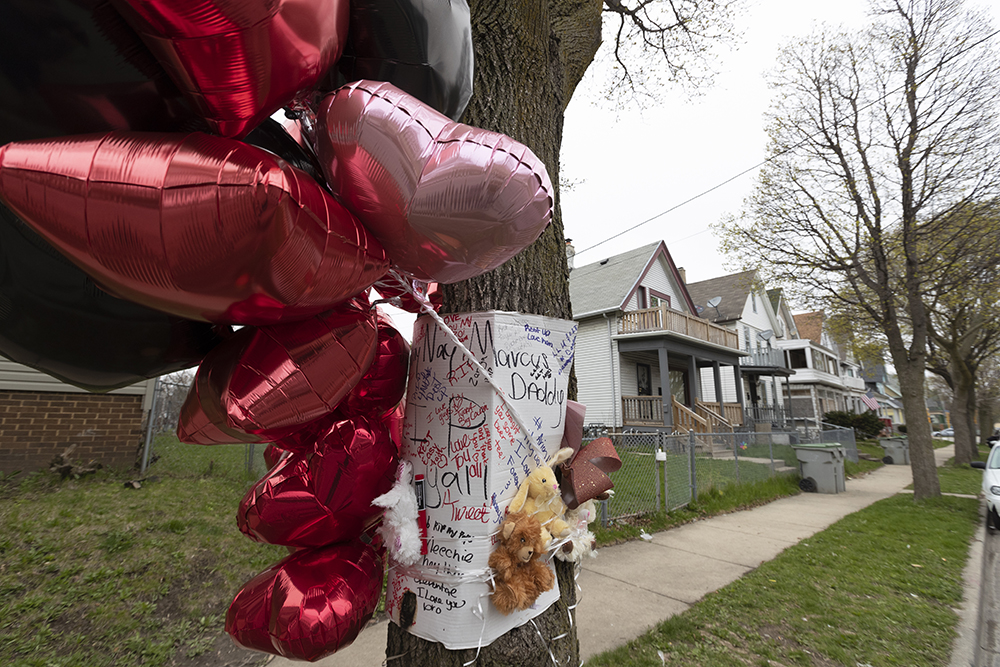
The private sale loophole
When it comes to felons, however, both state and federal law bar people convicted of any felony, including domestic violence, from possessing guns.
The majority of abusers who used illegal guns to kill their victims in 2020 fell into this category — they were prohibited from having firearms because they were already convicted felons, sometimes for domestic violence, data from End Domestic Abuse Wisconsin show.
For example, on April 27, 2020, 43-year-old Christopher Stokes called Milwaukee police and reported that he had just shot and “massacred” his entire family of five. He later pleaded guilty to five counts of first-degree reckless homicide. Stokes was previously convicted of felony domestic violence in 2012 and was prohibited from owning firearms.
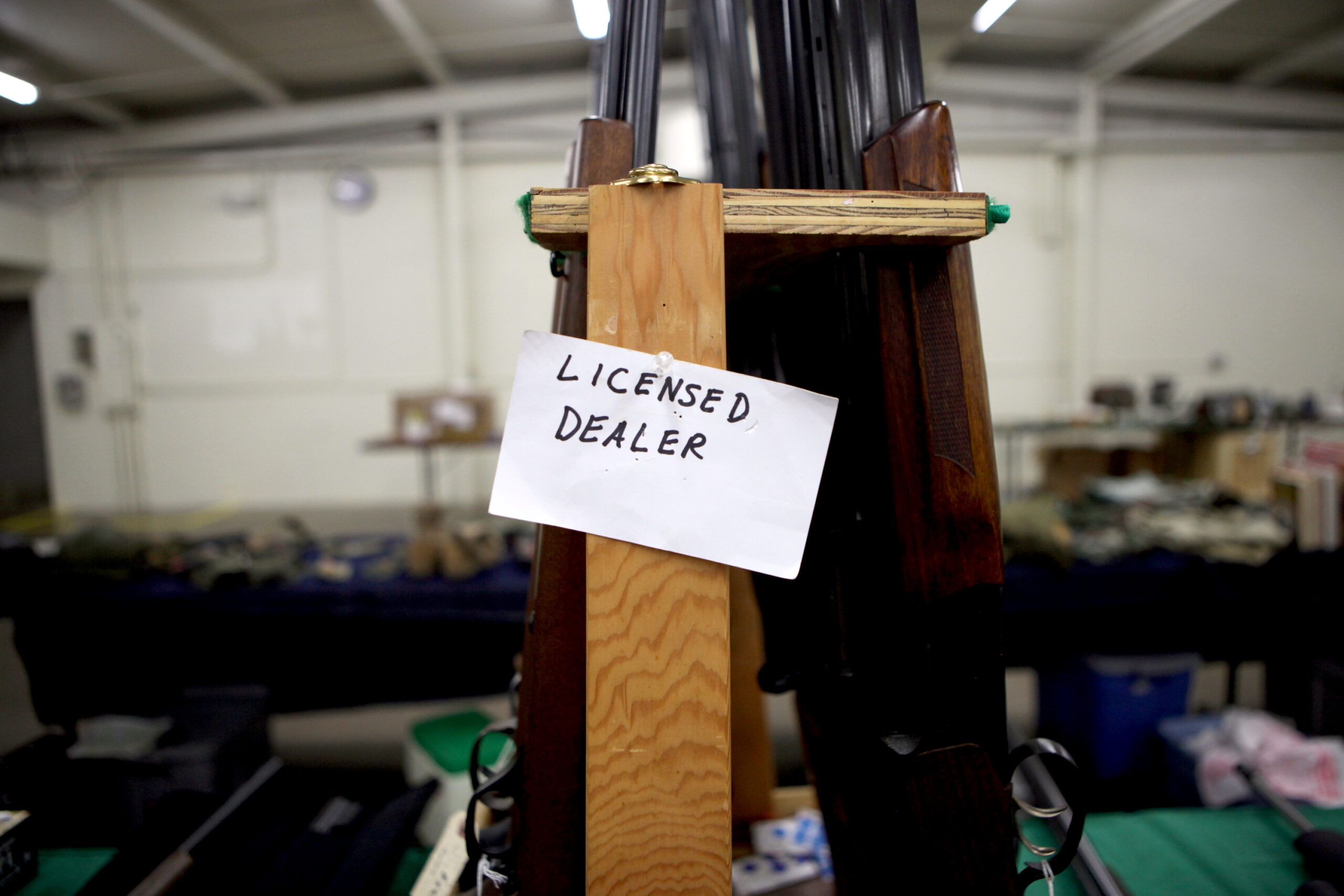
Part of the problem, experts say, is that background checks are not required for all gun purchases in Wisconsin, potentially allowing felons like Stokes to acquire firearms despite their history. Licensed firearms dealers catch felony convictions in their screenings, but many guns are purchased in other ways — for example, from private sellers over the internet or at gun shows, where background checks are not required.
“In my mind it makes zero sense that whether you get a background check depends on from whom you purchase your firearm,” Subeck said. “A firearm is every bit as dangerous if it’s purchased from your cousin, your uncle, or neighbor up the street, or some guy on the internet, as it is if you purchase it from a firearm dealer.”
Subeck also noted that protection orders that trigger firearm prohibitions are ineffective if no background check is conducted in a firearm purchase. “Closing that loophole,” she said, “would make the biggest difference.”
Wisconsin Attorney General Josh Kaul has proposed legislation, collectively called Safer Wisconsin, that would plug these holes. But previous efforts to close the so-called “gun show loophole” have failed to pass the Republican-controlled Legislature, despite overwhelming public support for such a measure.
Kaul said requiring universal background checks would “prevent people from evading the background check process.”
The attorney general’s proposal also would address other issues of growing concern to advocates working to stem gun violence in abusive relationships, such as ghost guns, firearms that come fully deconstructed and require assembly. Current laws do not treat such weapons as firearms.
Kaul also said he would like the Legislature to increase the felony classification for repeat straw purchases, gun buys made under a false identity.
“There are a few different mechanisms here to make it more difficult for somebody who’s prohibited” from owning a gun to get one, Kaul said.
Ewers-Kubly favors a “red flag” law that would keep domestic abusers from buying guns — from anyone.
“There are no words to describe how deeply the loss of our mother has impacted our family,” Ewers-Kubly said. “Your mom is the one you go to for so many things in life, not being able to pick up the phone and call her or drop by is something that we struggle to live with to this day.”
Coburn Dukehart and Phoebe Petrovic contributed reporting. The nonprofit Wisconsin Watch collaborates with WPR, PBS Wisconsin, other news media and the University of Wisconsin-Madison School of Journalism and Mass Communication. All works created, published, posted or disseminated by Wisconsin Watch do not necessarily reflect the views or opinions of UW-Madison or any of its affiliates.




